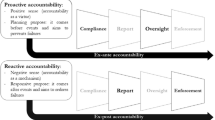Abstract
Moral reasoning traditionally distinguishes two types of evil:moral (ME) and natural (NE). The standard view is that ME is theproduct of human agency and so includes phenomena such as war,torture and psychological cruelty; that NE is the product ofnonhuman agency, and so includes natural disasters such asearthquakes, floods, disease and famine; and finally, that morecomplex cases are appropriately analysed as a combination of MEand NE. Recently, as a result of developments in autonomousagents in cyberspace, a new class of interesting and importantexamples of hybrid evil has come to light. In this paper, it iscalled artificial evil (AE) and a case is made for considering itto complement ME and NE to produce a more adequate taxonomy. Byisolating the features that have led to the appearance of AE,cyberspace is characterised as a self-contained environment thatforms the essential component in any foundation of the emergingfield of Computer Ethics (CE). It is argued that this goes someway towards providing a methodological explanation of whycyberspace is central to so many of CE's concerns; and it isshown how notions of good and evil can be formulated incyberspace. Of considerable interest is how the propensity for anagent's action to be morally good or evil can be determined evenin the absence of biologically sentient participants and thusallows artificial agents not only to perpetrate evil (and forthat matter good) but conversely to `receive' or `suffer from'it. The thesis defended is that the notion of entropy structure,which encapsulates human value judgement concerning cyberspace ina formal mathematical definition, is sufficient to achieve thispurpose and, moreover, that the concept of AE can be determinedformally, by mathematical methods. A consequence of this approachis that the debate on whether CE should be considered unique, andhence developed as a Macroethics, may be viewed, constructively,in an alternative manner. The case is made that whilst CE issuesare not uncontroversially unique, they are sufficiently novel torender inadequate the approach of standard Macroethics such asUtilitarianism and Deontologism and hence to prompt the searchfor a robust ethical theory that can deal with them successfully.The name Information Ethics (IE) is proposed for that theory. Itis argued that the uniqueness of IE is justified by its beingnon-biologically biased and patient-oriented: IE is anEnvironmental Macroethics based on the concept of data entityrather than life. It follows that the novelty of CE issues suchas AE can be appreciated properly because IE provides a newperspective (though not vice versa). In light of the discussionprovided in this paper, it is concluded that Computer Ethics isworthy of independent study because it requires its ownapplication-specific knowledge and is capable of supporting amethodological foundation, Information Ethics.
Similar content being viewed by others
References
M.M. Adams andR.M. Adams, editors. The Problem of Evil. Oxford University Press, Oxford, 1990.
S.L. Anderson. Evil. Journal of Value Inquiry, 24(1): 43-53, 1990.
I. Benn. Wickedness. Ethics, 95(4): 795-810, 1985.
M. Bunge. Towards a Technoethics. The Monist, 60: 96-107, 1977.
B.A. Dixon. Response: Evil and the Moral Agency of Animals. Between the Species, 11(1-2): 38-40, 1995.
L. Floridi. Does Information have a Moral Worth in Itself? Computer Ethics: Philosophical Enquiry (CEPE' 98). London School of Economics and Political Science, London, 14-15 December, 1998, http://www.wolfson.ox.ac.uk/ ~floridi/cepe.htm
L. Floridi. Information Ethics: On the Philosophical Foundation of Computer Ethics. Ethics and Information Technology, 1(1): 37-56, 1999a.
L. Floridi, editor. Etica and Politica, special issue on Computer Ethics, 2, 1999b http://www.univ.trieste.it/~dipfilo/ etica_e_politica/1999_2/homepage.html.
L. Floridi andJ. Sanders. Entropy as Evil in Information Ethics. In L. Floridi, editor, Etica and Politica, special issue on Computer Ethics, 2, 1999b http://www.univ.trieste.it/~dipfilo/ etica_e_politica/1999_2/homepage.html.
R. Gaita. Good and Evil: An Absolute Conception. Macmillan, London, 1991.
M. Gelven. The Meanings of Evil. Philosophy Today, 27(3/4): 200-221, 1983.
J. Hampton. The Nature of Immorality. Social Philosophy and Policy, 7(1): 22-44, 1989.
J. Hick. The Problem of Evil. In P. Edwards, editor, The Encyclopedia of Philosophy. Macmillan, New York, 1967.
D.G. Johnson. Sorting Out the Uniqueness of Computer-Ethical Issues. In L. Floridi, editor, Etica and Politica, special issue on Computer Ethics, 2, 1999b http://www.univ.trieste.it/ ~dipfilo/etica_e_politica/1999_2/homepage.html.
J. Kekes. Understanding Evil. American Philosophical Quarterly, 25: 13-24, 1988.
J. Kekes. Facing Evil. Princeton University, Princeton, NJ, 1990.
J. Kekes. The Reflexivity of Evil. Social Philosophy and Policy, 15(1): 216-232, 1998a.
J. Kekes. Evil. Routledge Encyclopedia of Philosophy. Routledge, London, 1998b.
D. King. Kasparov v. Deeper Blue. B T Batsford, Ltd, London, 1997.
W. Maner. Is Computer Ethics Unique? In L. Floridi, editor, Etica and Politica, special issue on Computer Ethics, 2, 1999b http://www.univ.trieste.it/~dipfilo/etica_e_politica/ 1999_2/homepage.html.
R.D. Milo. Immorality. Princeton University Press, Princeton, 1984.
T.M. Mitchell. Machine Learning. McGraw Hill, 1997.
J.H. Moor. What is Computer Ethics? Metaphilosophy, 16(4): 266-275, 1985.
G.E. Moore. Principia Ethica, rev. edn. Cambridge University Press, Cambridge, 1993.
A. Plantinga. God, Freedom, and Evil. Allen & Unwin;William B. Eerdmans, London/Grand Rapids, MI, 1975.
D. Pogue. Palm Pilot: The Ultimate Guide, 2nd edn. O'Reilly Press, 1999.
R. Rosenfeld. Can Animals Be Evil?: Kekes' Character-Morality, the Hard Reaction to Evil, and Animals. Between the Species, 11(1-2): 33-38, 1995.
R. Rosenfeld. Reply. Between the Species, 11(1-2): 40-41, 1995.
J. Rumbaugh et al. Object-Oriented Modeling and Design. Prentice Hall, Englewood Cliffs, NJ, 1991.
K.L. Schmitz. Entitative and Systemic Aspects of Evil. Dialectics and Humanism, 5: 149-161, 1978.
J.R. Searle. Minds, Brains, and Programs. The Behavioural and Brain Sciences, vol. 3. Cambridge University Press, Cambridge, 1980.
R. Taylor. Good and Evil-A New Direction. Macmillan, London, 1970.
A.M. Turing. Computing Machinery and Intelligence. Mind, 59(236): 433-460, 1950.
M. Zimmerman et al., editors. Environmental Philosophy: From Animal Rights to Radical Ecology. Prentice Hall, Englewood Cliffs, NJ, 1993.
Author information
Authors and Affiliations
Rights and permissions
About this article
Cite this article
Floridi, L., Sanders, J. Artificial evil and the foundation of computer ethics. Ethics and Information Technology 3, 55–66 (2001). https://doi.org/10.1023/A:1011440125207
Issue Date:
DOI: https://doi.org/10.1023/A:1011440125207



